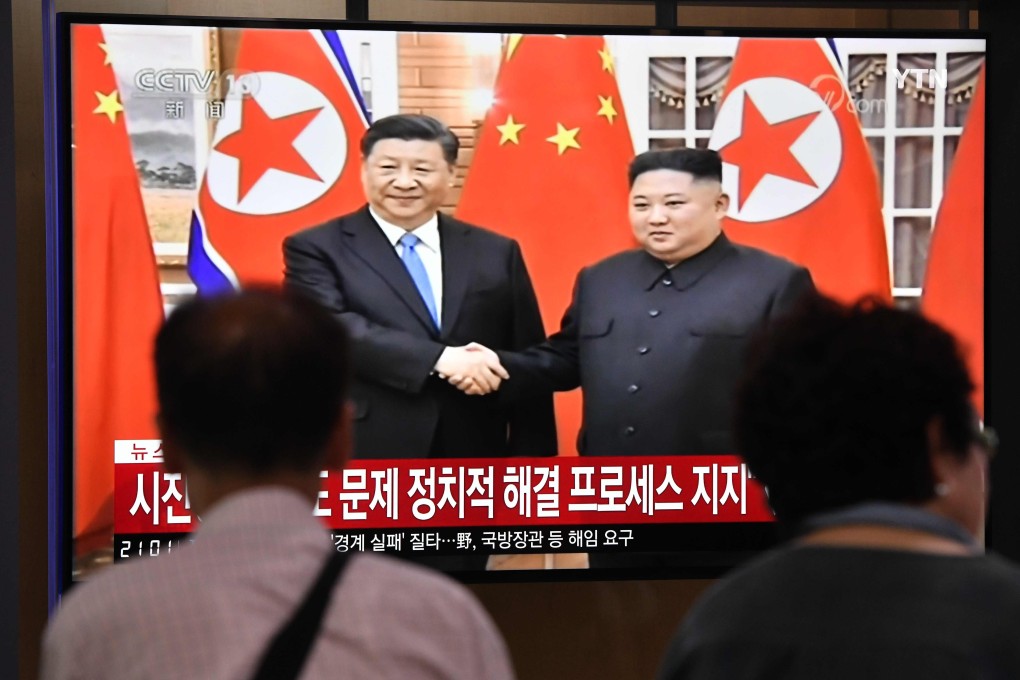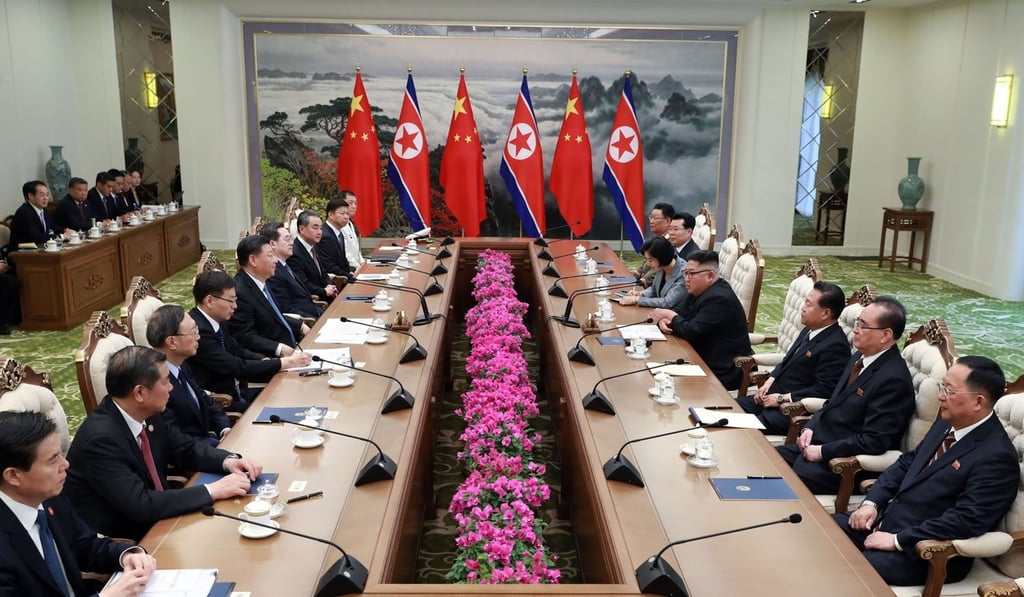Advertisement
China likely to tread carefully on North Korea as power dynamic shifts
- Situation on Korean peninsula is becoming ‘very complicated’ after President Xi Jinping said Beijing’s commitment to assist Pyongyang won’t change
- Analysts say China should be cautious about using its influence as leverage with the United States
Reading Time:4 minutes
Why you can trust SCMP

China has given its strong backing to Pyongyang in a move that could alter the power dynamic on the Korean peninsula, but analysts say Beijing should be cautious about using its neighbour as leverage with Washington.
Beijing’s influence on the peninsula was on display last week during President Xi Jinping’s first state visit to Pyongyang, where he said China’s commitment to assist North Korea would not change, and called for dialogue between Pyongyang and Washington.
Analysts said pledges made by Xi during the visit – after talks collapsed in February between North Korean leader Kim Jong-un and US President Donald Trump – were a sign that Beijing and Pyongyang, as well as Moscow, were becoming more aligned against Washington. But the approach, ahead of planned talks between Xi and Trump this week, could backfire on China, they said.
Advertisement
Pyongyang put on a lavish reception for Xi, who also visited a monument commemorating Chinese soldiers who fought on the side of North Korea during the Korean war.
On Saturday, North Korean state media said Xi and Kim had reached consensus on important issues after exchanging views on domestic and international matters of mutual concern.
Advertisement

Advertisement
Select Voice
Select Speed
1.00x